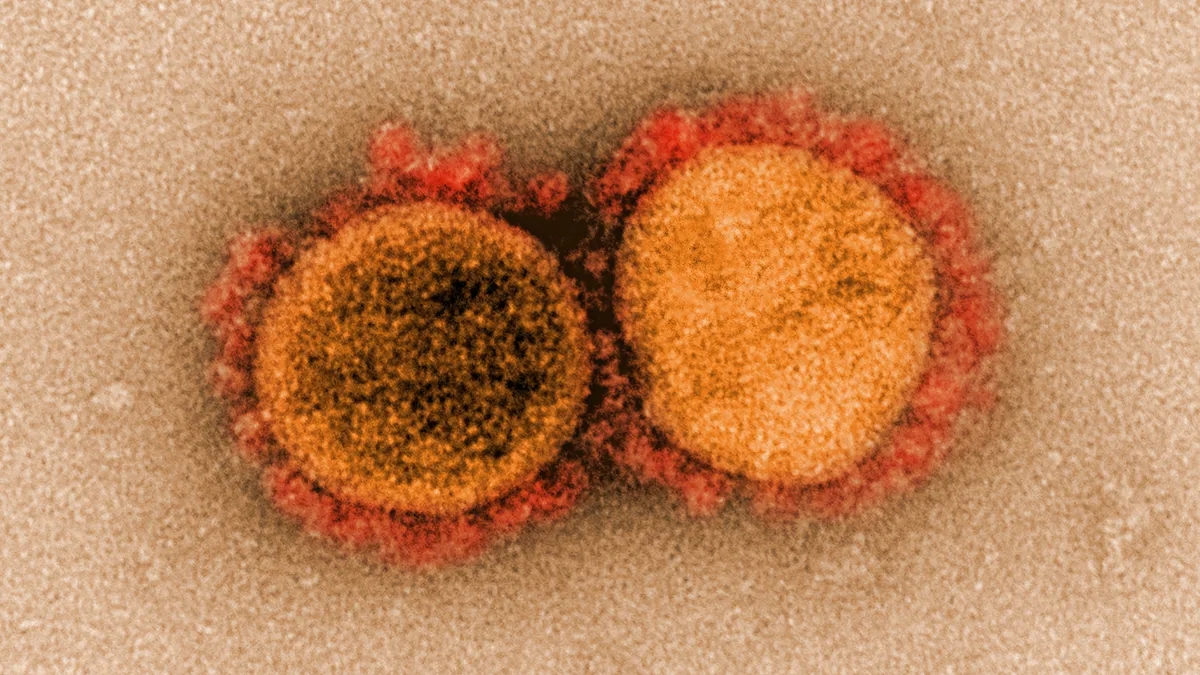This Friday, a group of vaccine and infectious disease experts will assemble virtually to discuss whether the Food and Drug Administration should clear Johnson & Johnson's coronavirus vaccine for emergency use.
The meeting, convened by the FDA, is likely one of the last steps in the agency's review of J&J's shot. The regulator held similar meetings to review study results from Pfizer and Moderna and, each time, authorized the companies' vaccines the very next day.
The advisers are expected to support emergency use of J&J's vaccine, as they did for Pfizer's and Moderna's. But Friday's meeting will be important viewing nonetheless, as the experts are likely to debate emerging issues like protection against new virus variants. The meeting will be broadcast through an FDA conference system as well as on Youtube. BioPharma Dive will be covering the panel live.
Here's what to watch for:
More details on the effectiveness of J&J's vaccine
The global effort to beat back the pandemic got a major lift last month, when J&J announced its vaccine prevented COVID-19 in a study of nearly 44,000 volunteers.
Overall, results showed a single shot was 66% effective in protecting participants from moderate or severe coronavirus disease — lower than the rates reported for Pfizer's and Moderna's vaccine but still well above the bar set by regulators. The good news was tempered, however, by signs of weakened vaccine potency against the coronavirus variant known as B.1.351 and first detected in South Africa.
As is typical for public company disclosures, J&J's announcement came in the form of a press release, highlighting key findings but revealing few other details.
Both the drugmaker and FDA will share much more data from the trial in documents usually published two days ahead of advisory committee meetings. Particularly important will be specific breakdowns of the number of COVID-19 cases in the vaccine and placebo groups — numbers used to calculate the shot's efficacy.
Friday's meeting could also shed light on how well J&J's vaccine protected against more mild disease, as well as the moderate-to-severe COVID-19 targeted by the study.
A window into the FDA's view on vaccine protection against variants
When the FDA reviewed Pfizer and Moderna's vaccines last year, its scientists were only evaluating how those shots performed against the original version of the coronavirus. The pandemic has shifted since then, with the emergence of viral variants that have spread across the world and appear to weaken the strength of multiple vaccines.
As a result, understanding exactly how variants impact protection has become an important task, as has developing a regulatory framework to update vaccines, if necessary. Friday's meeting on J&J's vaccine should provide the most comprehensive look to date at how the agency views both issues.
J&J has the largest amount of efficacy data against variants of any vaccine developer, giving the agency and outside experts a chance to scrutinize the vaccine's protective effects against different strains. The regulator could also seek experts' advice on how to test updated vaccines specifically tailored to variants. The FDA is in the process of preparing guidelines, potentially making the meeting a preview of the agency's thinking.
An update on J&J's expected vaccine supply
J&J's vaccine has two key advantages over Moderna's and Pfizer's: doses can be shipped and stored at refrigerator temperatures, rather than ultra-cold conditions; and only one shot is required instead of two. Those attributes could make J&J's vaccine a more efficient way to immunize a greater number of people, but only if there are enough doses to do so.
Unfortunately, that likely won't be the case immediately. News reports have indicated that production was delayed, causing J&J to fall behind a delivery schedule the company outlined when the U.S. pre-ordered 100 million doses last year. Last week, Jeffrey Zients, the White House's Coronavirus Response Coordinator, said only a "few million" doses will be available upon FDA authorization and that the government is working with the company to speed deliveries.
More details on those discussions — and the status of J&J's vaccine supply — could come Friday, giving a more accurate picture of what the U.S.'s supply will look like over the next several months. Though the U.S. has now ordered enough of Pfizer and Moderna's shots to fully vaccinate 300 million Americans, most of those doses are due to be delivered between April and June.
J&J has promised to deliver the 100 million doses ordered by the U.S. by the end of June.
Comparison between two types of vaccine technology
Moderna's and Pfizer's vaccines each rely on the same messenger RNA technology to train the immune system to repel the coronavirus. And both were about 95% effective at preventing symptomatic COVID-19 in clinical testing, raising expectations that other shots might be similarly potent.
That hasn't quite happened. While multiple shots using different, more established technologies — including J&J's vaccine — have proven highly effective, they haven't matched the bar set by Moderna and Pfizer. And that raises questions for the agency and outside experts to answer: Are mRNA vaccines superior, or were they fortunate to be tested earlier, before the spread of more transmissible variants?
J&J has argued the latter and highlighted its shot's near-complete protection against severe COVID-19 and hospitalizations, a significant finding that's now consistent across several vaccines. That will be an important message for regulators to emphasize and for convincing people J&J's shot is just as important to get as any other.
Other comparisons between the shots will be much more difficult to answer, especially as available efficacy data is limited to three to six months' worth.
Any points of debate that emerge between committee experts
The last two advisory committee meetings resulted in overwhelmingly positive votes in support of FDA authorization for first Pfizer and BioNTech's vaccine, and then Moderna's.
J&J's shot is expected to receive similarly positive backing. More vaccine doses are desperately needed and J&J has positive results from a well-run and large clinical trial.
But there's much for the panel's experts to discuss, not least of which will be the shot's comparatively lesser efficacy than Pfizer's and Moderna's vaccines. Committee members may also debate differences between how J&J counted cases of COVID-19 in its trial and how Pfizer and Moderna did.
J&J's vaccine was tested as one dose, a major difference from the two-dose regimens of Pfizer's and Moderna's. While data on long-term efficacy isn't available, durability of protection could be another issue raised on Friday.
At their first meeting, experts disagreed on whether Pfizer's vaccine should be authorized in 16- and 17-year olds, while the second featured lots of back-and-forth over whether study participants who received placebo should be quickly offered the vaccine.
Both meetings also had discussions about rare adverse events, such as allergic reactions, that led the FDA to put warnings on labels of both shots. J&J's briefing documents could detail other rare, yet noteworthy adverse events, such as the unspecified "serious medical event" that briefly halted testing last year but wasn't deemed related to vaccination.



















